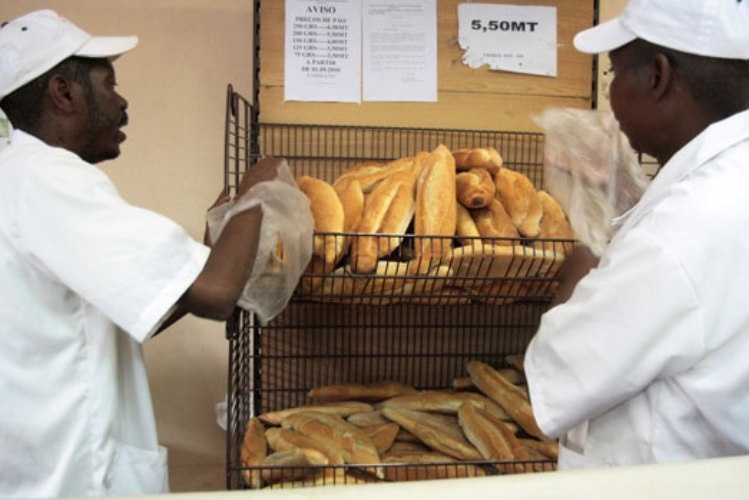Mozambique: Almost half the rural population of Tete province without access to water supply
Swiss, Russian banks blamed for catastrophic ‘iceberg of debt’ in Mozambique

Notícias (File photo) / Workers go about their jobs at a surviving bakery in Mozambique after 100 other such businesses were forced to close due to wheat flour price hikes.
Banks that saw dollar signs in the developing economies of Africa are being blamed for a looming fiscal crash in Mozambique over so-called “tuna bonds.”
Emblematic of the easy lending by western banks, 24 fishing boats meant to be a modern tuna fleet are gathering rust in the port of Maputo.
The boats were paid for out of an $850-million loan arranged in 2013 by Credit Suisse and Russia’s VTB to finance “fishing infrastructure.” Instead of creating jobs, raking in hard currency and providing a cheap source of protein in this low-wage country, they represent billions in loans to be repaid no matter the social costs.
The price of basics such as bread and fuel are already rising along with public anger at the scale of the problem. Armed soldiers and police took to the streets of Maputo last week after rumors of demonstrations.
Not only did the state tuna-fishing company fall short of its targets but $500 million of the “tuna bond” was used improperly for maritime security—defense spending not authorized by the parliament.
Revelations of the hidden spending has led the International Monetary Fund to suspend bailout loans which were helping Mozambique pay its $12 billion debt to external lenders.
Meanwhile, the UK-based Jubilee Debt Campaign, which coined the phrase “iceberg of debt,” has called on the banks to “pay the price for these illegitimate loans.” They denounced the banks for their uncritical lending at a time when interest rates in the developed world were ultra-low and banks sitting on billions of dollars were looking elsewhere for high yields.
“Both lenders and borrowers are responsible for ensuring loans are given and used responsibly,” said Tim Jones, a policy officer of the Campaign. “Credit Suisse and VTB should pay the price for these illegitimate loans, and should not be bailed out indirectly by the IMF or anyone else.”
The Ivorian chief executive of Credit Suisse, coincidentally, was quoted by the Wall Street Journal as saying in October that it was “madness” for poor countries to finance infrastructure through dollar borrowing, declined to comment.
The southern African country now must repay more than $12 billion or 82 percent of the GDP.
“We see the government lied to us and things will get harder for ordinary Mozambicans now,” 37-year-old singer Tinoka Zimba said. “We used to think that we are all in together, trying to make things better. This crisis is really sad.”












Leave a Reply
Be the First to Comment!
You must be logged in to post a comment.
You must be logged in to post a comment.